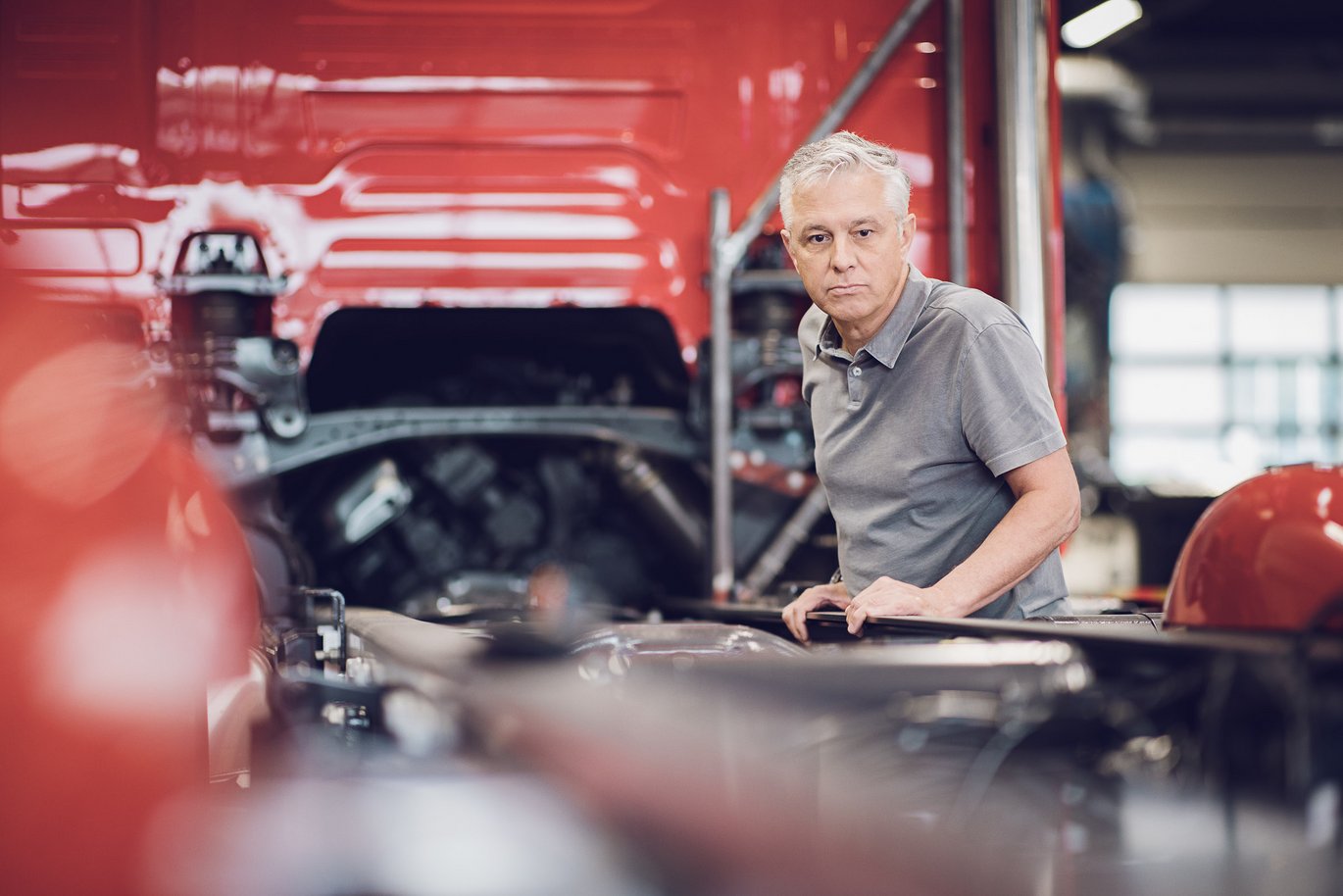Ready for electric trucks? Researchers have come a long way with technologies to make the heavy transport sector green
How do we get the biggest trucks onto electricity? Is it at all possible to develop a financially viable alternative to diesel-powered goods transport? Researchers from Aarhus University are in charge of some of the biggest EU investments to develop new technology for green trucks, and they explain how far they have come.

Out with massive tanks of diesel, and in with electricity from solar cells and wind turbines. This is the plan for a group of researchers at Aarhus University who are working every day to develop technology to enable electrification of the transport sector.
"Finding electrical solutions for heavy road vehicles is urgent to secure a competitive and climate-neutral alternative to fossil fuels in the future. Trucks account for a large part of our carbon emissions, and even though there are still bumps on the road ahead, I believe that we are on the verge of a full green transition," says Corneliu Barbu, associate professor at the Department of Electrical and Computer Engineering at Aarhus University.
Corneliu Barbu is Denmark's leading expert on technology for green trucks, and he has a key role in European collaboration to develop solutions that will make it possible to develop efficient batteries for large vehicles and a completely new electrical infrastructure.
A European super battery could soon be ready
The researchers' goal is to design a battery for heavy vehicles with long range and short recharge time based on sustainable materials that do not make us dependent on countries outside Europe.
"We're looking at the entire battery lifecycle and the use of raw materials, taking into account that the batteries are to be available in Europe. The geopolitical situation today means that we don’t want to make the transport sector dependent on either oil from the Middle East or batteries from China," says Corneliu Barbu.
So far, they have almost fully developed a prototype hybrid battery as an array of components located under a bus or truck. It is a set of modules and can be expanded to match the size of the individual vehicle. The modules are also safe, low weight, and have efficient heat control.
“The design proposal we’re working on is extremely innovative in its materials, chemicals and electronics, and we’ll be sending all the data from the batteries up into the cloud and using artificial intelligence to create optimum performance and control. It goes without saying that charging such a huge battery in just a few minutes demands a huge energy transfer, and that's been a central engineering challenge in our research," says Corneliu Barbu.
In summer 2024, the battery will be tested on buses in Turkey, after which the researchers expect it to be ready for serial production.
New electronics for heavy trucks
To make the battery work in the biggest trucks, the researchers are working on a completely new type of electronics that can increase the power density.
"We need a great deal of energy to charge a battery in a large truck and transfer it to the engine, and the big question for us researchers has been: How do we do this intelligently without it becoming too costly? We’re well on the way to finding an answer in an interdisciplinary research collaboration in which we’re using IT calculation methods to design advanced electronics with completely new properties. We have very high expectations," says Corneliu Barbu.
The time frame is approximately ten years
Even though the researchers have made a number of technological breakthroughs for the green trucks, we still need to be patient, according to Corneliu Babu. It will take a few years before the technologies at the university are ready for mass production, and even if they were ready today, we would need a basic infrastructure for the green trucks.
"It’ll take time to expand the infrastructure, and you can’t make things go quicker by introducing a new tax or by building more charging stations. We’re facing a huge challenge to establish a new intelligent and integrated supply system geared to huge amounts of solar and wind energy combined with Power-to-X technologies and new technologies to capture CO2 from the atmosphere. We need to implement solutions that enable storage of different types of energy, in different ways, and across sectors in a single coherent energy system, while at the same time ensuring smooth transport of electricity across national borders. In Denmark, we have both the know-how and expertise to lead this technological development across Europe. However, it still requires relatively large investments in research and development, and ultimately it requires that we train the engineers who can actually work on building our new supply system," says Corneliu Babu.
Contact
Corneliu Babu, Associate Professor, Department of Electrical and Computer Engineering
